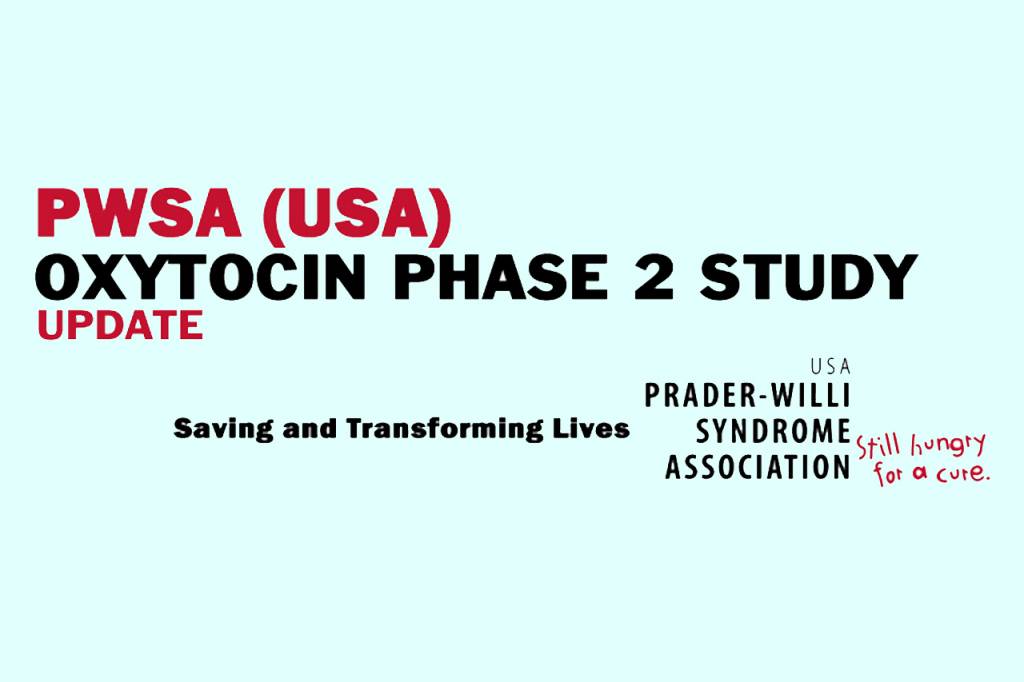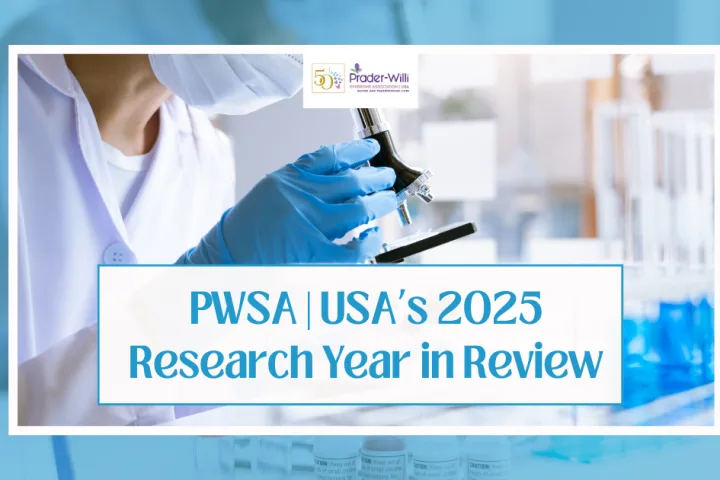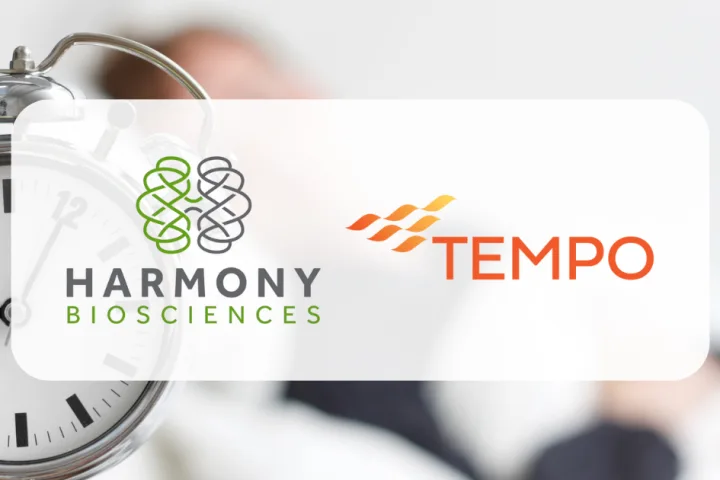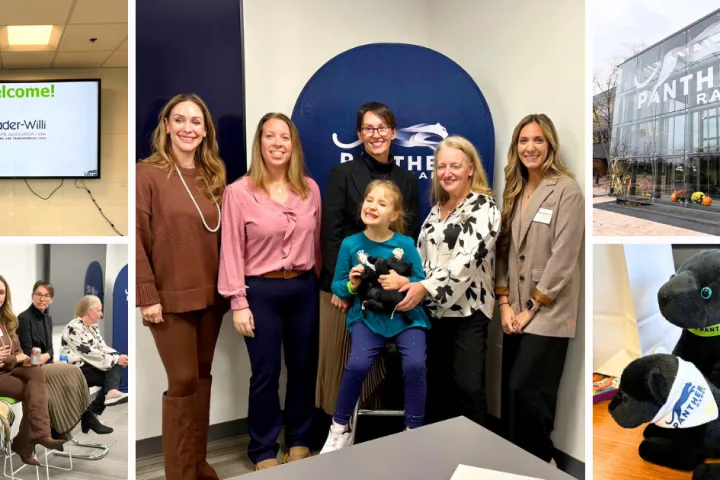It has been nearly one year since we learned of the initial potential of oxytocin and PWSA (USA) began raising funds for the phase 2 clinical trial. This trial will provide us a greater understanding of the potential benefits, appropriate dosage needed, and additional vital information. The phase 1 study results were very positive and have been submitted for publication. We are amazed and gratified by the response of the PWS community for this project. Over $600,000 has been raised to date which is sufficient to begin the phase 2 study.
While the fundraising campaign has proceeded, significant work has been underway to prepare for the clinical trial. This includes designing the protocol which determines how many patients should be enrolled, the dosages, and the criteria that will be measured.
One important consideration is what form of oxytocin to use. Not all oxytocin is the same. Each form of the drug might be made with different ingredients, a different purity, and different concentrations. Also, it is extremely important that whichever brand is selected is well positioned to be quickly moved forward after this next trial. Otherwise, there might be a longer delay before the drug is on the market for PWS.
PWSA (USA) and everyone involved in this effort want to move as quickly as possible. We receive urgent calls almost every day from families that might benefit from oxytocin. But as stewards of the funds raised, we want to make sure it is invested to maximize the information learned from the trial and to speed future development. So please bear with us as we work to optimize the trial.
In the meantime, we continue to seek additional funds for the trial. While we could support the study with the funds raised to date, it would be beneficial to raise additional donations. That would allow the researchers to enroll more patients and do more testing which could provide more definitive information regarding oxytocin.
To donate, click here
We also want to pass along one note of caution. We are aware that oxytocin is available today through the internet or compound pharmacies. Despite the potential of oxytocin, we strongly encourage all families to resist trying any of these forms of oxytocin. Until oxytocin is properly studied in PWS, it could be dangerous or ineffective to give your loved one oxytocin. As the father of a daughter who has PWS and might benefit from oxytocin, I want this drug vetted and approved as much as anyone. Working in the pharmaceutical industry, I am well aware of the precautions we need to take in order to move this drug forward so it can eventually be available to all of our children.
Thank you,
Rob Lutz, co-chair of PWSA (USA) Research Committee





 Perry A. Zirkel has written more than 1,500 publications on various aspects of school law, with an emphasis on legal issues in special education. He writes a regular column for NAESP’s Principal magazine and NASP’s Communiqué newsletter, and he did so previously for Phi Delta Kappan and Teaching Exceptional Children.
Perry A. Zirkel has written more than 1,500 publications on various aspects of school law, with an emphasis on legal issues in special education. He writes a regular column for NAESP’s Principal magazine and NASP’s Communiqué newsletter, and he did so previously for Phi Delta Kappan and Teaching Exceptional Children. Jennifer Bolander has been serving as a Special Education Specialist for PWSA (USA) since October of 2015. She is a graduate of John Carroll University and lives in Ohio with her husband Brad and daughters Kate (17), and Sophia (13) who was born with PWS.
Jennifer Bolander has been serving as a Special Education Specialist for PWSA (USA) since October of 2015. She is a graduate of John Carroll University and lives in Ohio with her husband Brad and daughters Kate (17), and Sophia (13) who was born with PWS. Dr. Amy McTighe is the PWS Program Manager and Inpatient Teacher at the Center for Prader-Willi Syndrome at the Children’s Institute of Pittsburgh. She graduated from Duquesne University receiving her Bachelor’s and Master’s degree in Education with a focus on elementary education, special education, and language arts.
Dr. Amy McTighe is the PWS Program Manager and Inpatient Teacher at the Center for Prader-Willi Syndrome at the Children’s Institute of Pittsburgh. She graduated from Duquesne University receiving her Bachelor’s and Master’s degree in Education with a focus on elementary education, special education, and language arts. Evan has worked with the Prader-Willi Syndrome Association (USA) since 2007 primarily as a Crisis Intervention and Family Support Counselor. Evans works with parents and schools to foster strong collaborative relationships and appropriate educational environments for students with PWS.
Evan has worked with the Prader-Willi Syndrome Association (USA) since 2007 primarily as a Crisis Intervention and Family Support Counselor. Evans works with parents and schools to foster strong collaborative relationships and appropriate educational environments for students with PWS. Staci Zimmerman works for Prader-Willi Syndrome Association of Colorado as an Individualized Education Program (IEP) consultant. Staci collaborates with the PWS multi-disciplinary clinic at the Children’s Hospital in Denver supporting families and school districts around the United States with their child’s Individual Educational Plan.
Staci Zimmerman works for Prader-Willi Syndrome Association of Colorado as an Individualized Education Program (IEP) consultant. Staci collaborates with the PWS multi-disciplinary clinic at the Children’s Hospital in Denver supporting families and school districts around the United States with their child’s Individual Educational Plan. Founded in 2001, SDLC is a non-profit legal services organization dedicated to protecting and advancing the legal rights of people with disabilities throughout the South. It partners with the Southern Poverty Law Center, Protection and Advocacy (P&A) programs, Legal Services Corporations (LSC) and disability organizations on major, systemic disability rights issues involving the Individuals with Disabilities Education Act (IDEA), Americans with Disabilities Act (ADA), and the federal Medicaid Act. Recently in November 2014, Jim retired.
Founded in 2001, SDLC is a non-profit legal services organization dedicated to protecting and advancing the legal rights of people with disabilities throughout the South. It partners with the Southern Poverty Law Center, Protection and Advocacy (P&A) programs, Legal Services Corporations (LSC) and disability organizations on major, systemic disability rights issues involving the Individuals with Disabilities Education Act (IDEA), Americans with Disabilities Act (ADA), and the federal Medicaid Act. Recently in November 2014, Jim retired.